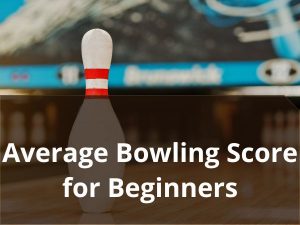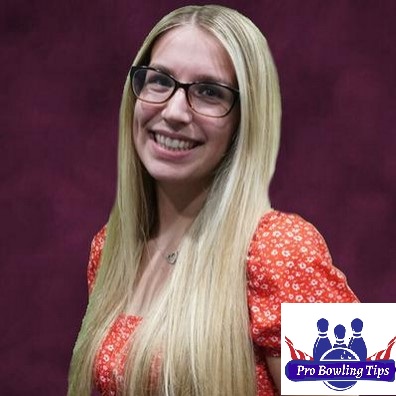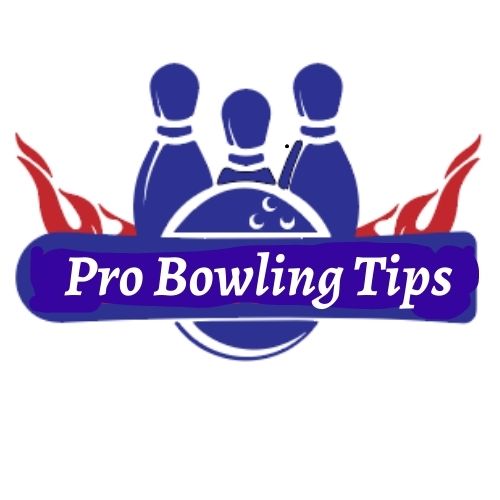What is the Average Bowling Score for Beginners: A Comprehensive Guide In 2024!
What is the average bowling score for beginners! Welcome, my fellow newcomers! How are you enjoying this sport? Yes, I know you’re a beginner. Otherwise, you wouldn’t b reading this article. Don’t worry! I got you. This is where you learn new things every day, especially, if it is about bowling. In this article, you will find information about the average bowling scores for beginners.
If you have recently bowled and really worried about your bowling score ever since? Then you have come to the right place! Let me break down everything for your better understanding.

What is the average bowling score for Beginners?
Are you bowling simply for fun? That’s alright. But what about those who are playing in a competitive manner? They are more likely to put attention to their overall score than others do. Like any other sport, bowling gets easier to play with time and lots of practice. The better you get, the higher your score will get.
In general, a decent average bowling score for newcomers is somewhere between 100-170. During your learning phase at the beginning, expect to see scores anywhere between 50 to 70 points. With the right strategies, consistency, and adequate practice, recreationally, a beginner can have an average between 130 and 150. This is considered a really good average for beginners who are just getting started in this journey.
At first, a beginner is unable to knock down too many pins during a shot. So the possibility of strikes and spares is low. Hence, the score doesn’t get too high without hitting most of the pins in every shot. Once a beginner learns to pick up some spares and starts to bowl strikes, the average score increases gradually.
Beginners are always shocked to see their bowling score when they are new to this game. It will be stupid to compare your bowling average score with intermediate and professional bowlers’ scores. This is simply because they are way too skilled than new bowlers. If you are confused about your average score, don’t worry it is completely normal to see a score you’re disappointed with.
As a newbie, who is only getting started, and is dreaming to become a pro someday, your first target should be reaching 100 points first. Once that is done, aim higher and try to score more than 100. However, don’t rush it! Sometimes it takes months or probably a year to finally reach the statistical average of a bowler. If you’re struggling to get a 100+ score, give yourself some time while you’re still in your practice phase. After you successfully learn to score some strikes and spares, 130-150 points wouldn’t be too difficult to achieve.
How to increase the average score for beginners?
Practice and Practice
Practice! Practice! And practice! There’s no second to that! Without practice, you can forget about ever getting your bowling score high. Yes, the 130-150 point score is pretty decent for a beginner. But how long can a player be happy with that? If you bowl only once a month, you cannot possibly improve your bowling strategies and learn new skills.
This is why practice is required. At the same time, you can learn information and new bowling methods from various bowling blogs, articles, and even books. It is natural for beginners to be less experienced than intermediate and professional bowlers. If you are new to this sport, first you should get a bowling ball that is compatible with your bowling style. Next, start aiming to get strikes. Try to get as many strikes as possible.
Properly choose a Bowling Ball
Once you learn to score some strikes, you will see that you are missing to do the same in some shots. There will be 1 or more pins at the end of the lane that needs to be picked up. This is when you need to work on your spare shots. You will probably need a straight, non-hooking bowling ball for these shots (unless you already bowl straight in a stroker style).
Improve Your Technique
Without learning to pick spare shots, you cannot get a score of more than 200. So, right after you learn to get some strikes, start practicing your spare shots so it does not affect your average bowling score. And to get consecutive strikes, certain techniques are important to learn to roll your ball. You need to figure out the right angles of entry, a good starting point (where you should stand), etc. Once you can do this bowling some strikes and spares won’t be too much of a problem. So focus on your spares as well as your strikes, and see how your average score in bowling improves over time.
FAQs Of What Is The Average Bowling Score For Beginners!
What is considered an average bowling score for a beginner?
- Beginners’ scores can widely vary, but many sources suggest an average range from 50 to 150, depending on the beginner’s initial skill level, understanding of the game, and amount of practice. The very first scores for someone new to bowling might hover between 50 and 70, with potential improvement to 130-150 as techniques and strategies are learned and applied.
How does scoring work in bowling for beginners?
- Bowling scores are calculated based on the number of pins knocked down, with additional points awarded for strikes and spares. A strike earns ten points plus the total of the next two rolls, while a spare earns ten points plus the total of the next roll. Learning how scoring works can help beginners set realistic goals and understand their progress.
Is there a ‘good’ bowling score beginners should aim for?
- While the concept of a ‘good’ score can be subjective and varies among individuals, aiming for a score above 100 is often encouraged for beginners. This target is considered a milestone that reflects a basic understanding of the game and some level of skill.
How can beginners improve their bowling scores?
- Improvement tips often include practicing regularly to get comfortable with bowling techniques, choosing the right bowling ball, focusing on form and posture, and learning to adjust to different lane conditions. Watching and learning from more experienced bowlers can also offer valuable insights.
What are common mistakes beginners make that affect their scores?
- Common mistakes include using improper bowling balls (either too heavy or too light), incorrect foot placement and delivery, lack of consistency in approach and swing, and not paying attention to lane conditions. Addressing these mistakes can lead to quick improvements in scores.
Conclusion
If your dream is to become a professional bowler someday, I will highly encourage you to start practicing for maximum perfection. Just remember, without a few strikes or spares, you will not see much improvement in your overall bowling score. So take this estimated average as a target scale and start to get better in bowling for a better average. I wish you nothing but good luck. So have faith in yourself and keep practicing bowling

Passionate Bowler and Bowling Enthusiast
Jess Pinelli is a dedicated bowling enthusiast with a deep love for the sport that spans over 6 years. With numerous strikes, spares, and a few gutter balls under hes belt, he has honed his skills on lanes across the country. Pinelli’s journey in the world of bowling has been a remarkable one, from casual weekend games with friends to competitive league play and even a few local tournaments.
Driven by her passion for the game, Pinelli decided to channel her expertise and knowledge into the digital realm, becoming a prolific author on this bowling website. She’s your go-to source for everything bowling-related, from mastering the perfect hook to choosing the right bowling ball and even navigating the world of bowling etiquette.
When she’s not busy writing informative articles or reviewing the latest bowling gear, you’ll likely find Pinellis at her favorite local bowling alley, helping newcomers improve their game or enjoying some friendly competition with fellow bowlers. She firmly believes that bowling is not just a game but a community, and she’s committed to fostering that sense of camaraderie both online and offline.

